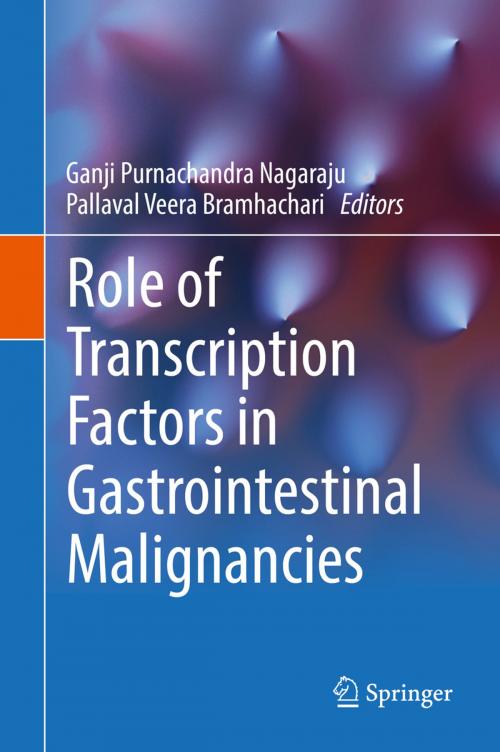Role of Transcription Factors in Gastrointestinal Malignancies
Nonfiction, Health & Well Being, Medical, Medical Science, Genetics, Specialties, Oncology| Author: | ISBN: | 9789811067280 | |
| Publisher: | Springer Singapore | Publication: | March 27, 2018 |
| Imprint: | Springer | Language: | English |
| Author: | |
| ISBN: | 9789811067280 |
| Publisher: | Springer Singapore |
| Publication: | March 27, 2018 |
| Imprint: | Springer |
| Language: | English |
This book illustrates the importance of transcription factors in gastrointestinal cancer progression and metastasis with regard to understanding the mechanism and target definition in drug discovery. Further, it describes the complex issues associated with cancer cell growth and metastasis. The respective chapters provide detailed information on the various types of transcription factors (NF-kB, HIF-1, STAT-3, E2F1, and Sp1) and gastric-associated cancers (esophagus, stomach, colorectal, liver and pancreatic cancers) in connection with specific functional studies like cell cycle, angiogenesis, migration, invasion and apoptosis. These transcription factors control the expression of several signaling pathways involved in tumor growth, making them ideal targets for gastrointestinal cancer therapy. In closing, the book provides comprehensive descriptions of the major challenges associated with gastrointestinal cancer therapy.
This book illustrates the importance of transcription factors in gastrointestinal cancer progression and metastasis with regard to understanding the mechanism and target definition in drug discovery. Further, it describes the complex issues associated with cancer cell growth and metastasis. The respective chapters provide detailed information on the various types of transcription factors (NF-kB, HIF-1, STAT-3, E2F1, and Sp1) and gastric-associated cancers (esophagus, stomach, colorectal, liver and pancreatic cancers) in connection with specific functional studies like cell cycle, angiogenesis, migration, invasion and apoptosis. These transcription factors control the expression of several signaling pathways involved in tumor growth, making them ideal targets for gastrointestinal cancer therapy. In closing, the book provides comprehensive descriptions of the major challenges associated with gastrointestinal cancer therapy.















